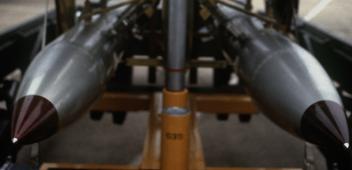The dangers of denial: nuclear weapons in China-India relations
Is a dangerous nuclear competition emerging between the two most populous nations? In this Lowy Institute Analysis, Fiona Cunningham and Rory Medcalf warn of nuclear dangers as China and India rise. The authors call for a strategic stability dialogue embedded in mutual respect, to ensure possible future confrontations do not involve nuclear threats or misjudgments.

- No nuclear ‘arms race’ between China and India
- But an asymmetric competition, with destabilizing consequences
- Need for strategic stability dialogue, mutual respect, ‘no first use’ agreement
Executive Summary
The risk of nuclear confrontation between China and India is widely considered to be low, even though New Delhi cites China as a reason for its nuclear weapons and part of Beijing’s arsenal is intended to deter India. This benign assessment needs to be revisited as the power and interests of Asia’s rising giants expand and the potential grows for them to clash. China’s unwillingness to recognise any Indian right to possess nuclear weapons is becoming unsustainable. So are assumptions that the two nations are in a state of stable, mutual deterrence. In fact, asymmetric capabilities and perceptions could prove destabilising. Denial of a problem is part of the problem.
A more competitive nuclear dynamic between China and India would bring multiple and underappreciated risks. Already the imperative by Beijing and New Delhi to improve their arsenals is an obstacle for nuclear arms control and disarmament. And without progress in nuclear dialogue and stability – embedded in a willingness to respect each other’s interests – risks could grow that some future confrontation between these powers might involve nuclear threats and misjudgments.
Both powers now have an opportunity to begin talks on strategic stability and nuclear arms control, as part of more serious efforts to build understanding, predictability and transparency through strategic dialogue. This should lead to a bilateral pact not to be the first to threaten the other with nuclear weapons.
Please see the PDF for full text.



